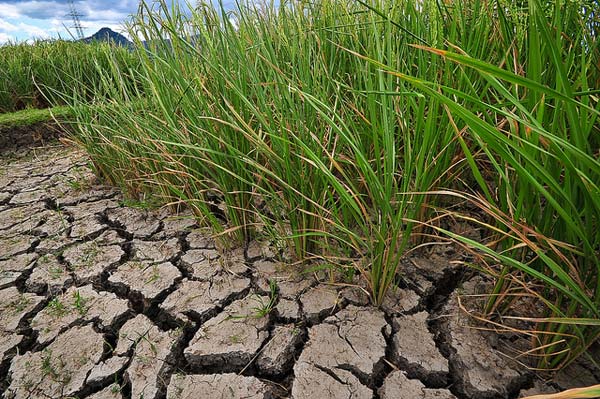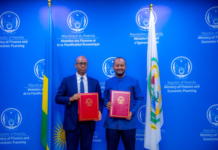Scientists at the International Rice Research Institute (IRRI) and their partners in India have identified gene variants that can significantly increase rice yields under drought conditions, offering a breakthrough in climate-resilient farming.
The discovery, published in the Journal of Experimental Botany, centres on a variant of the gene OsIRO2 that enhances drought tolerance during the reproductive stage — a period when water scarcity often causes severe yield losses. When this variant was introduced into the popular variety DRR Dhan 44, it resulted in up to 27% more grain under drought stress without reducing yield stability.
“Through this finding, researchers can now develop better rice varieties more precisely that withstand water scarcity while maintaining high yields,” said Dr. Pallavi Sinha, scientist at IRRI. “For farmers, this means better harvests and improved resilience, especially as climate change intensifies.”
The research team developed 450 rice lines carrying unique gene variants, or superior haplotypes, and evaluated them against the original parent (DRR Dhan 44) and the donor parent (ADT 12) in multiple field trials across locations and growing seasons. They uncovered 67 genetic associations with drought-tolerance traits and identified ten key genes for priority breeding.
The OsIRO2 variant stood out for its ability to maintain productivity under limited water conditions, offering breeders a precise genomic target. “By using advanced genetic tools and working closely with our partners in India, we’ve been able to identify the exact parts of the genome that help rice survive drought,” said Dr. Vikas Singh, IRRI Regional Breeding Lead for South Asia. “This gives breeders a clear and practical target to develop improved varieties that protect farmers’ harvests.”
The study builds on previous drought research that mapped broad genomic regions linked to water stress response. This time, researchers pinpointed a single high-performing gene variant, enabling marker-assisted and haplotype-based selection for faster breeding.
IRRI’s next phase will focus on integrating these drought-tolerant variants into breeding pipelines across Asia and Africa, aiming to deliver climate-resilient, high-yield rice varieties to drought-prone farming communities.
The work was funded by India’s Department of Biotechnology (DBT) and the Indian Council of Agricultural Research (ICAR). According to the researchers, these findings could play a key role in ensuring food security for millions of people as erratic weather patterns and prolonged dry spells become more frequent.








